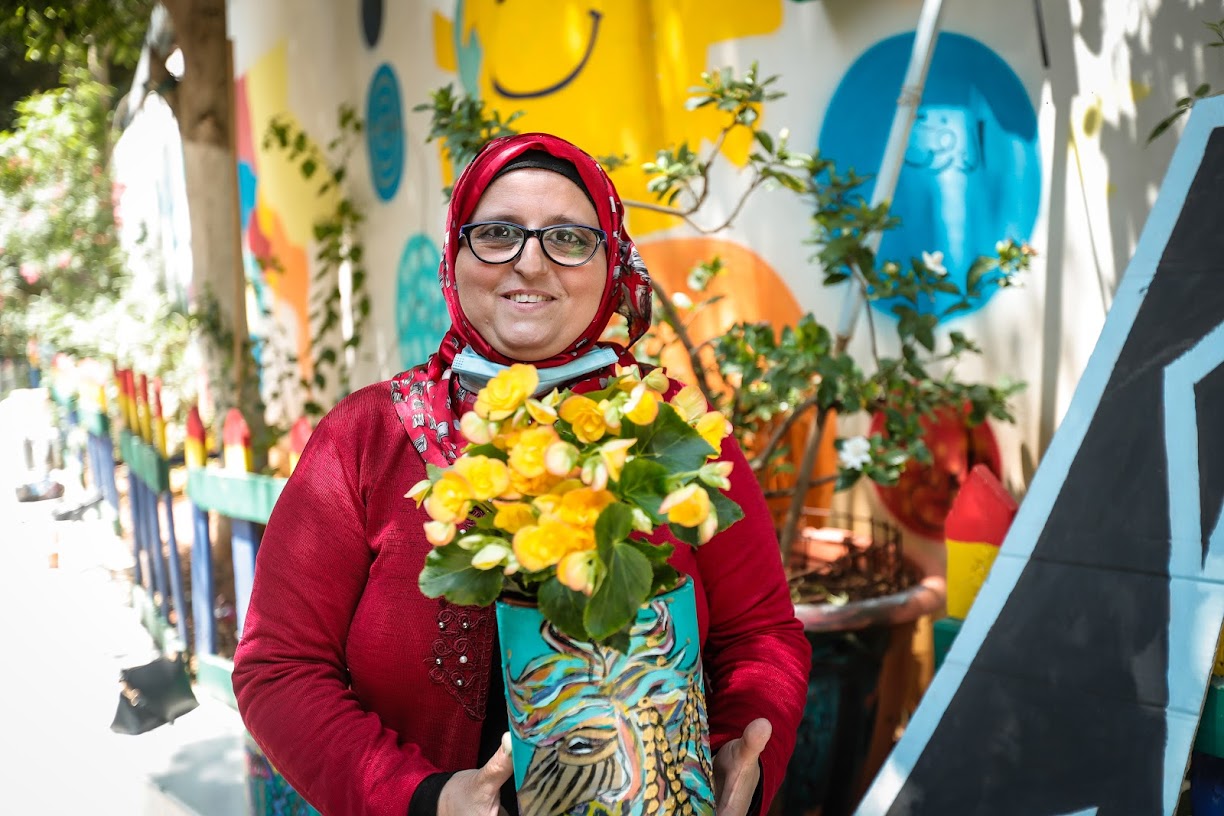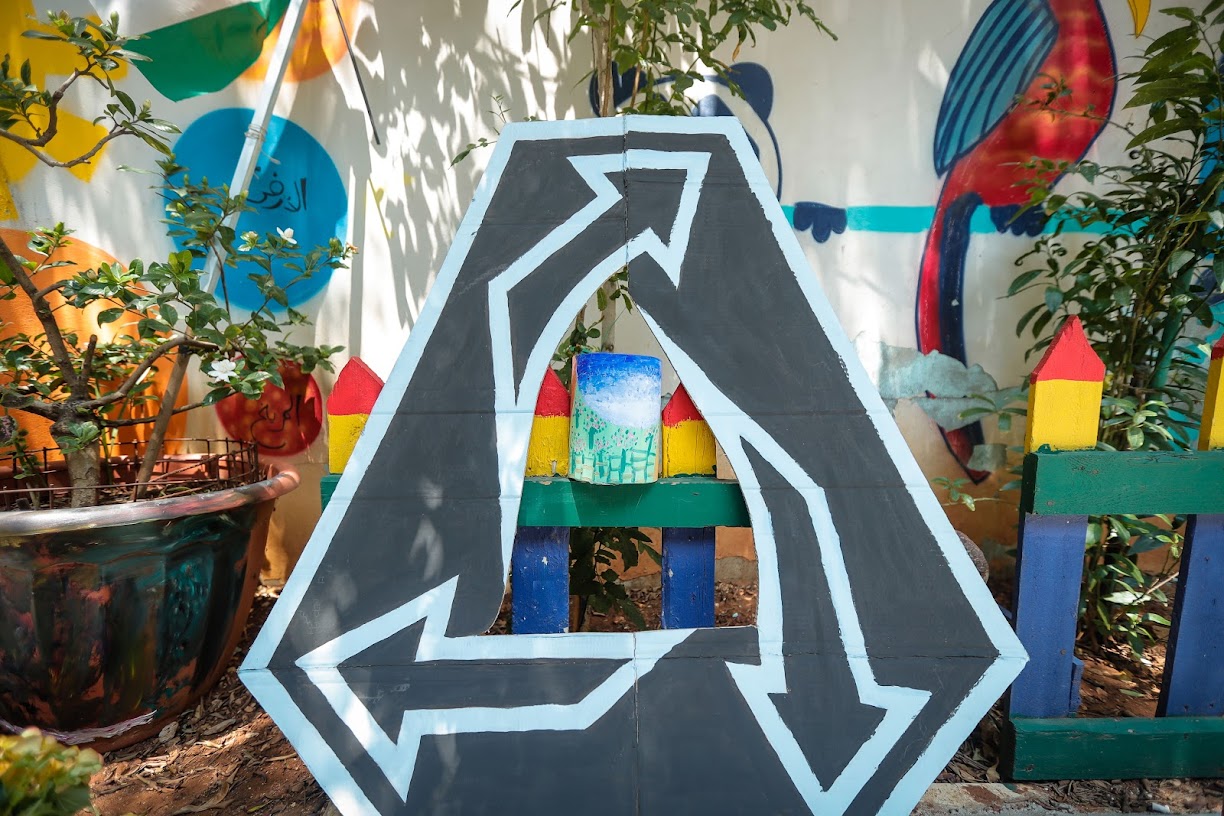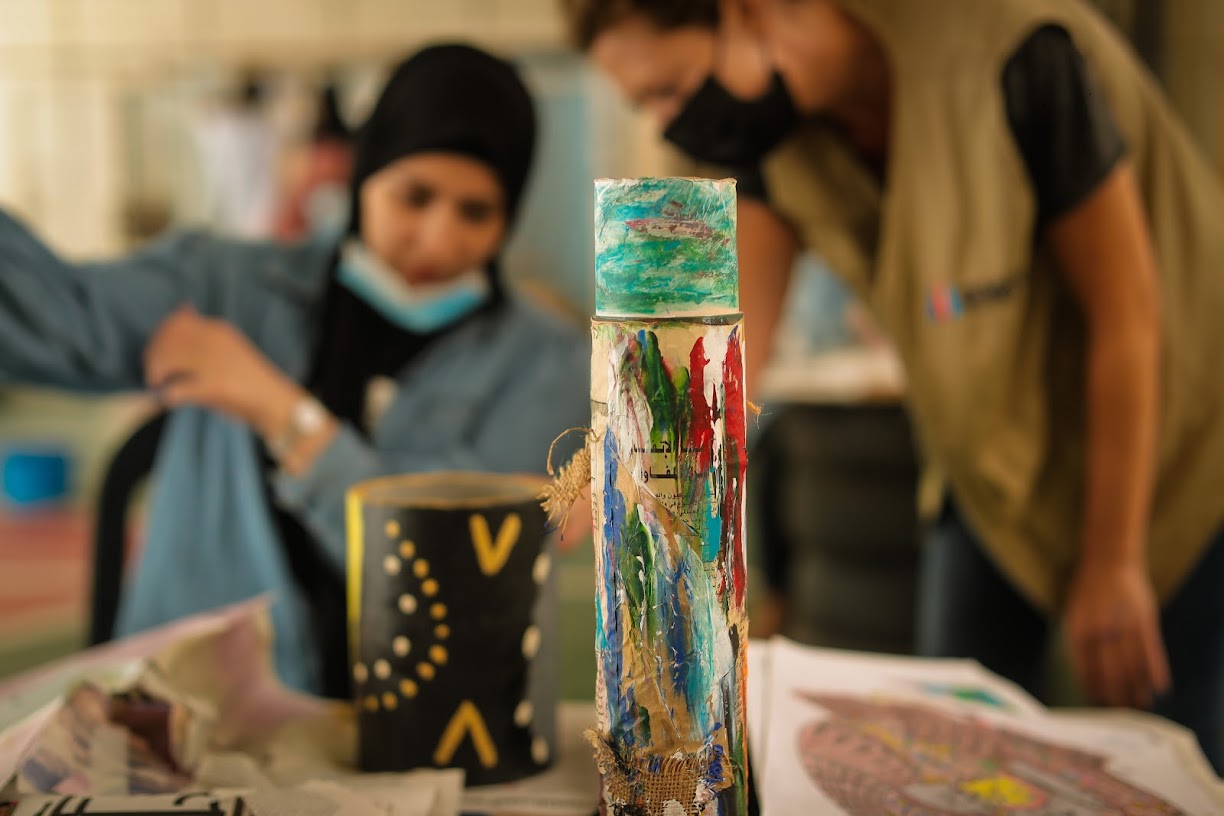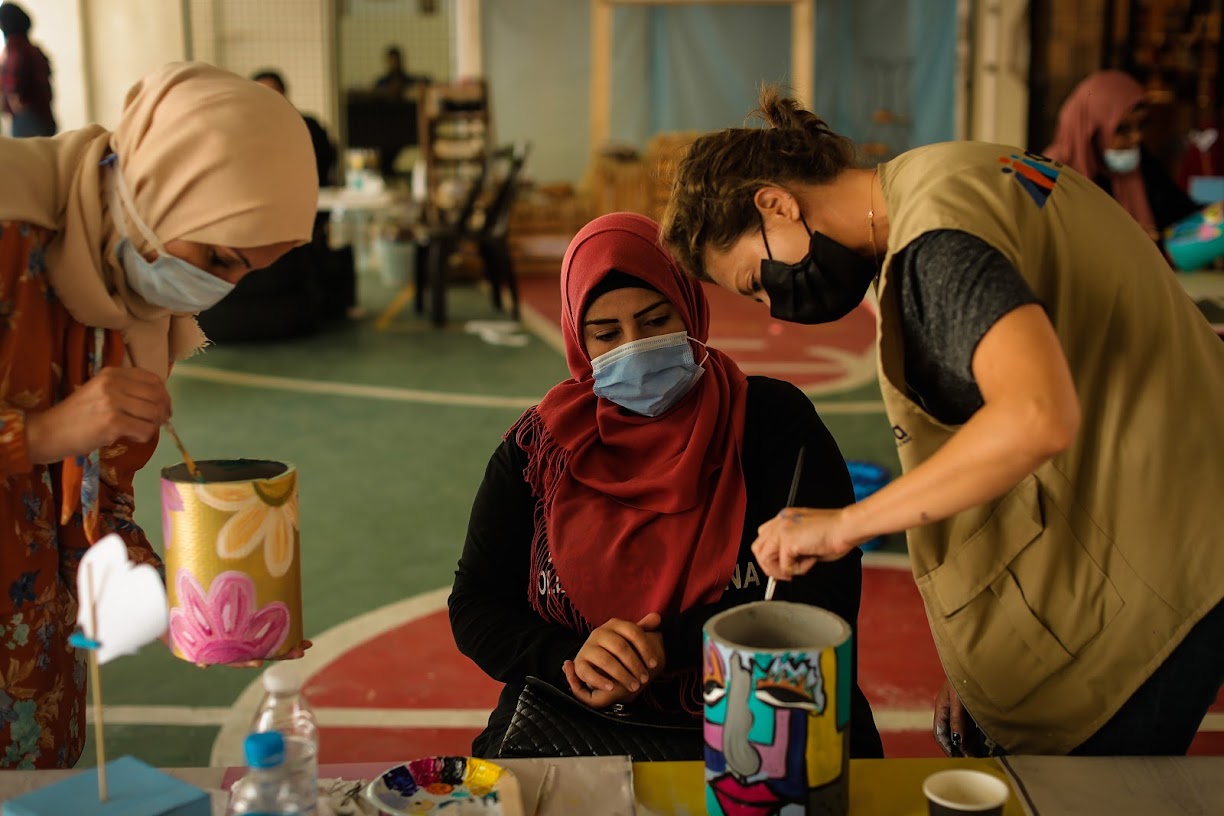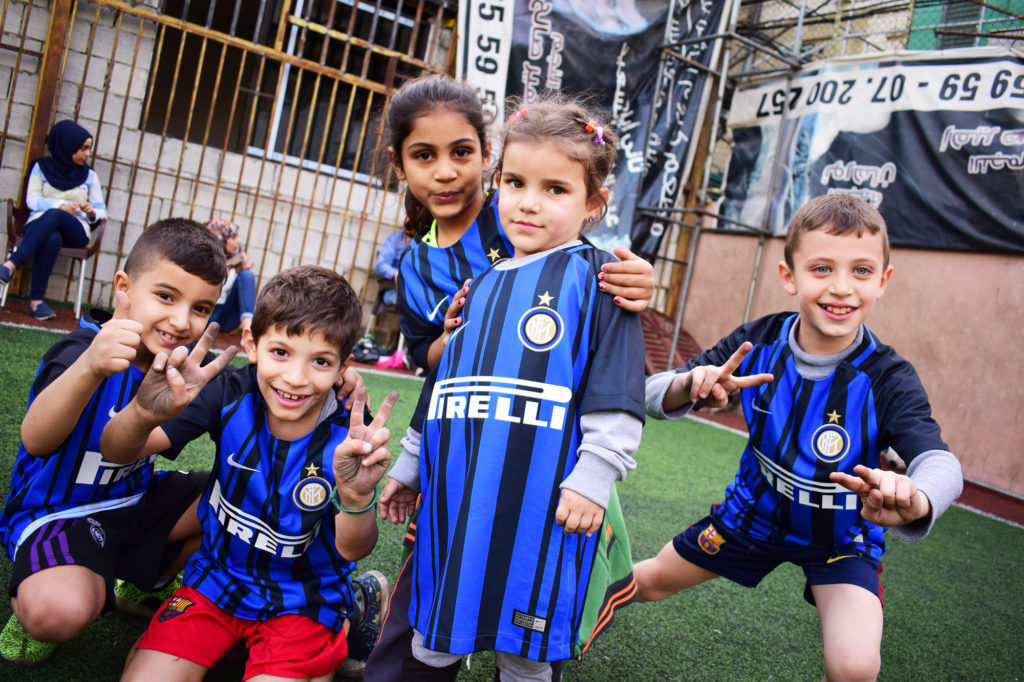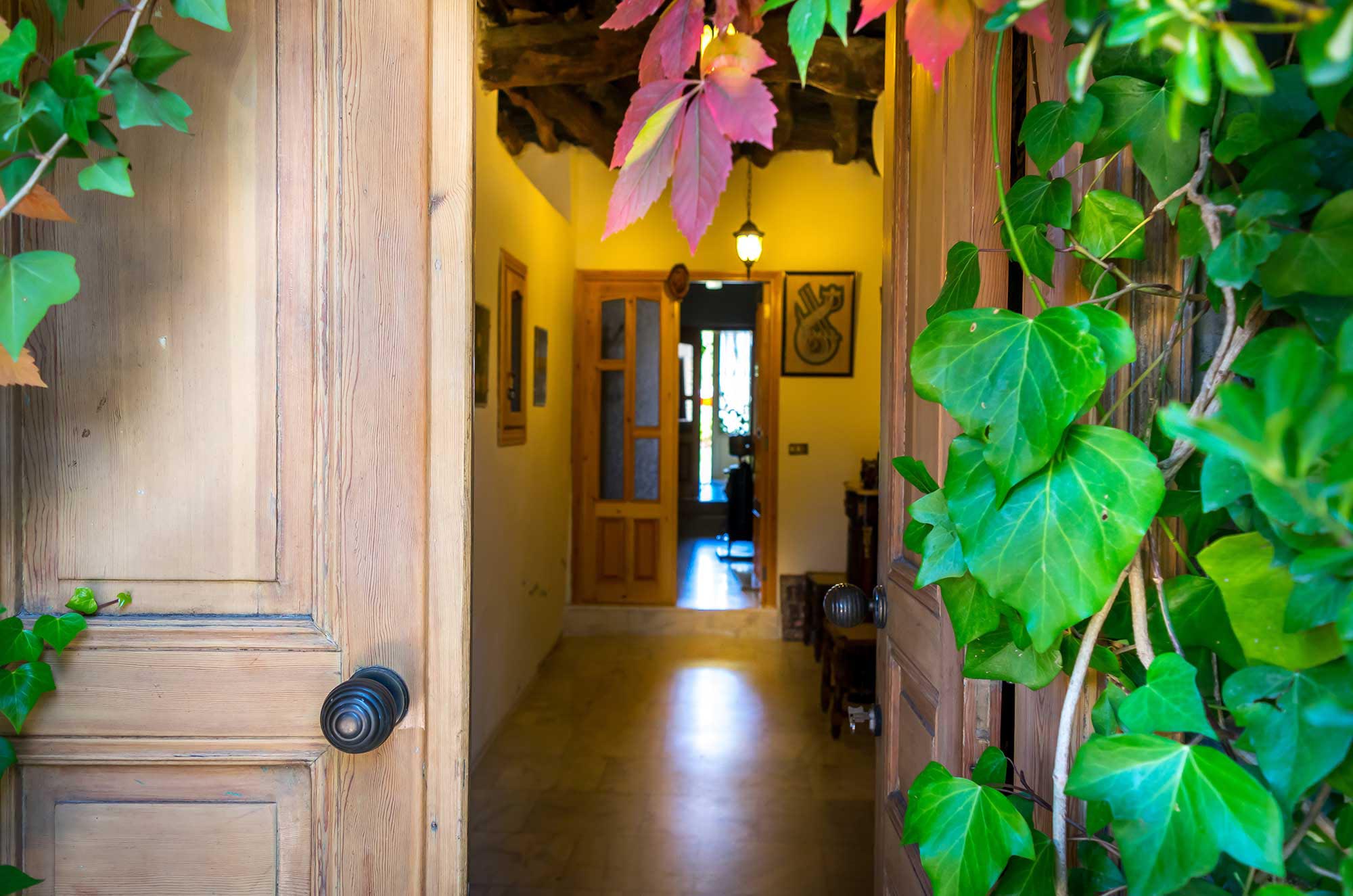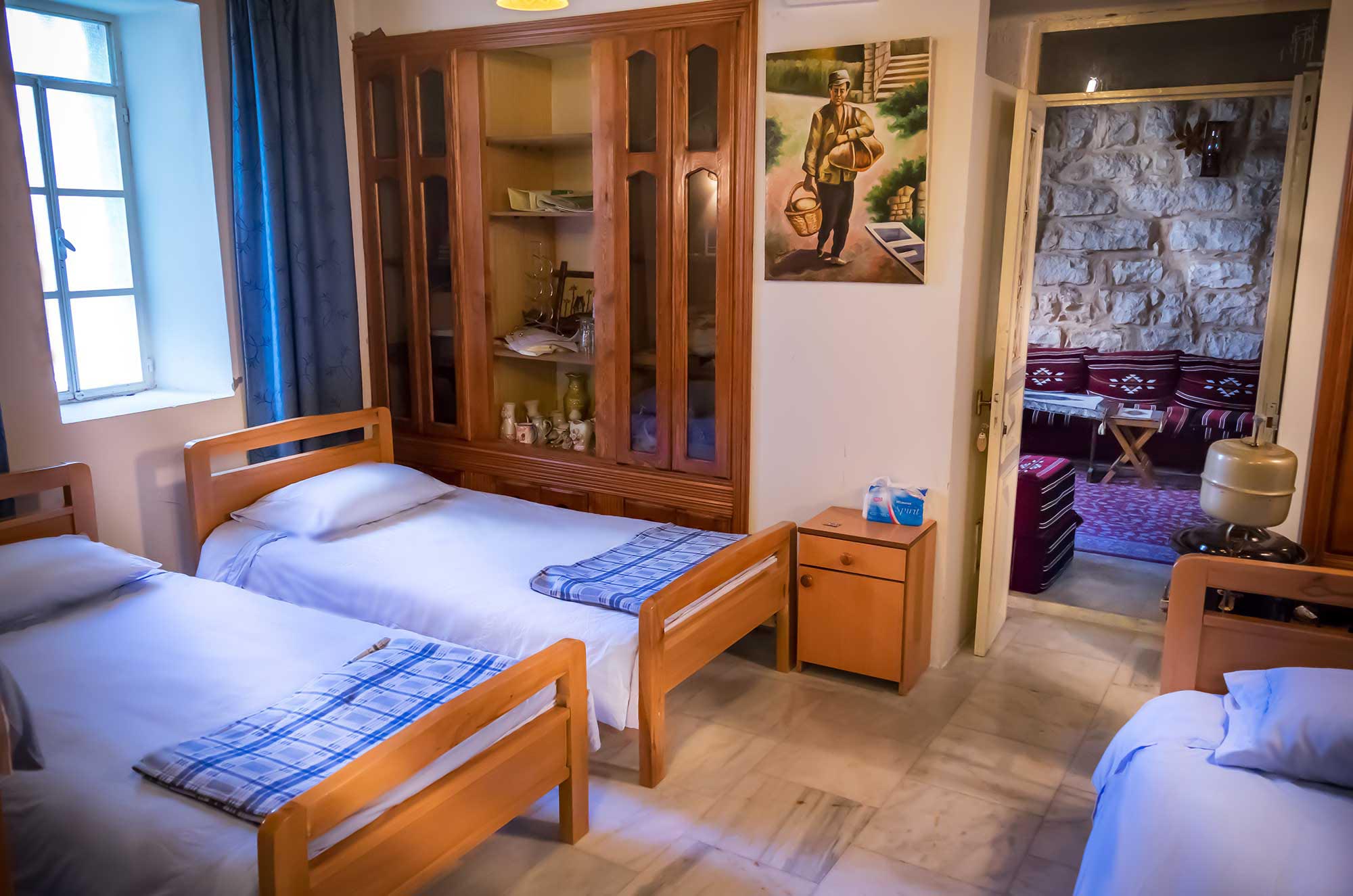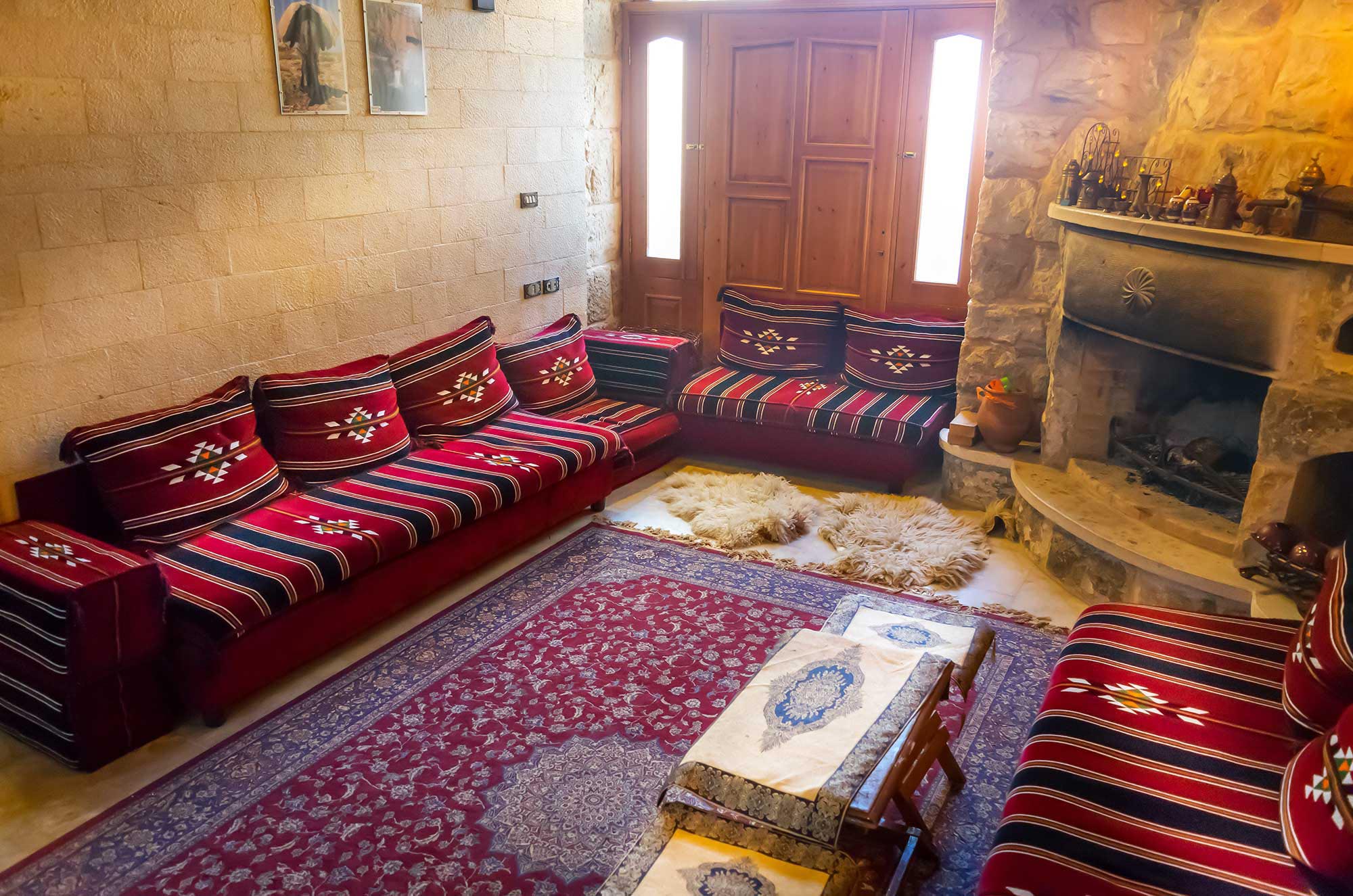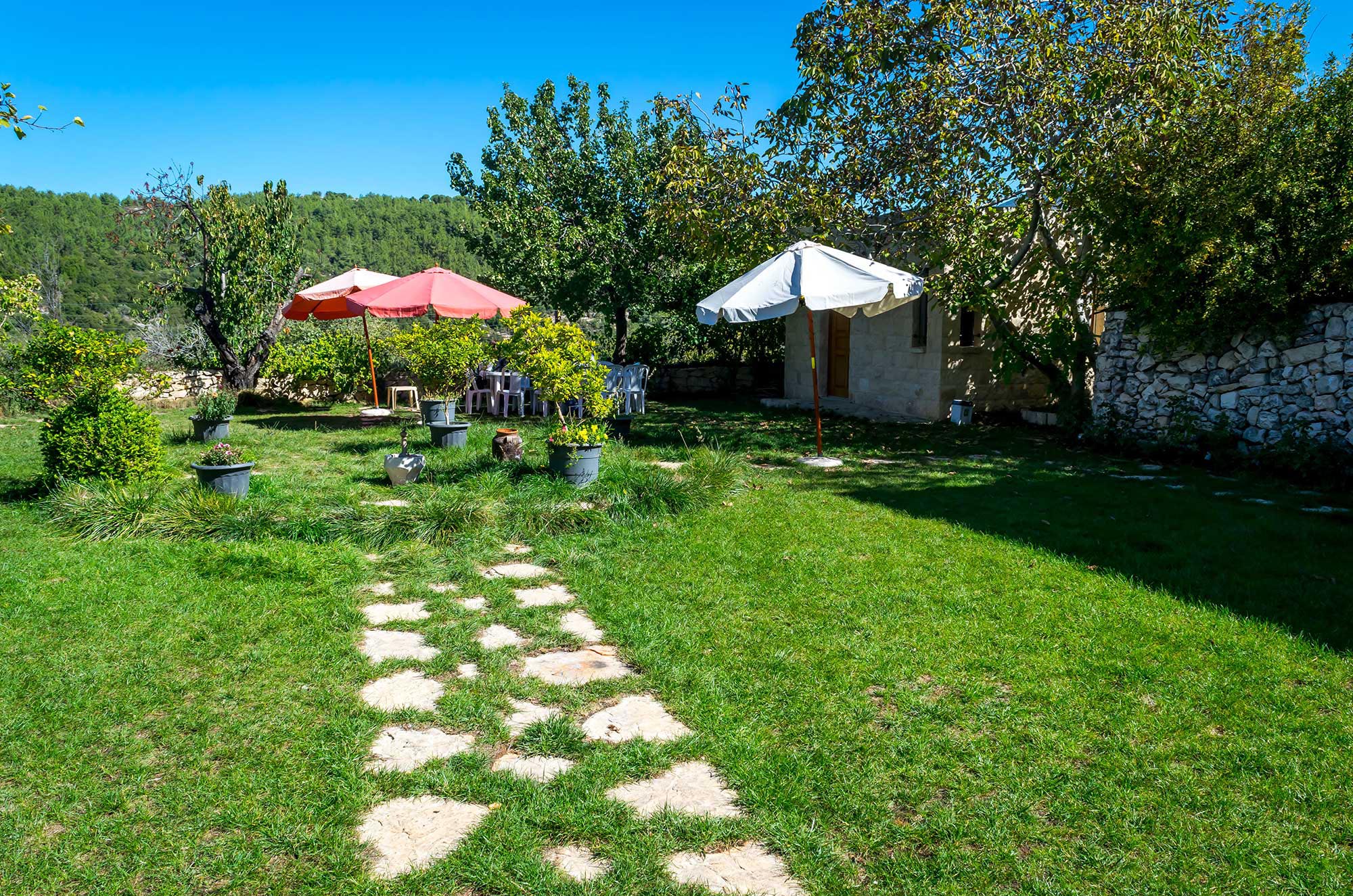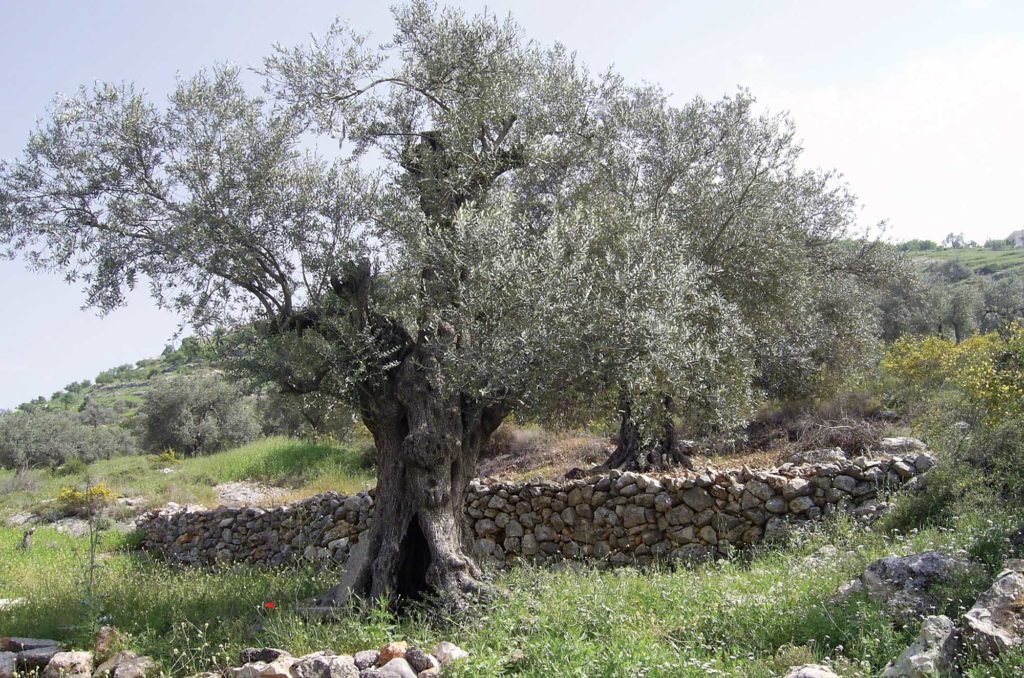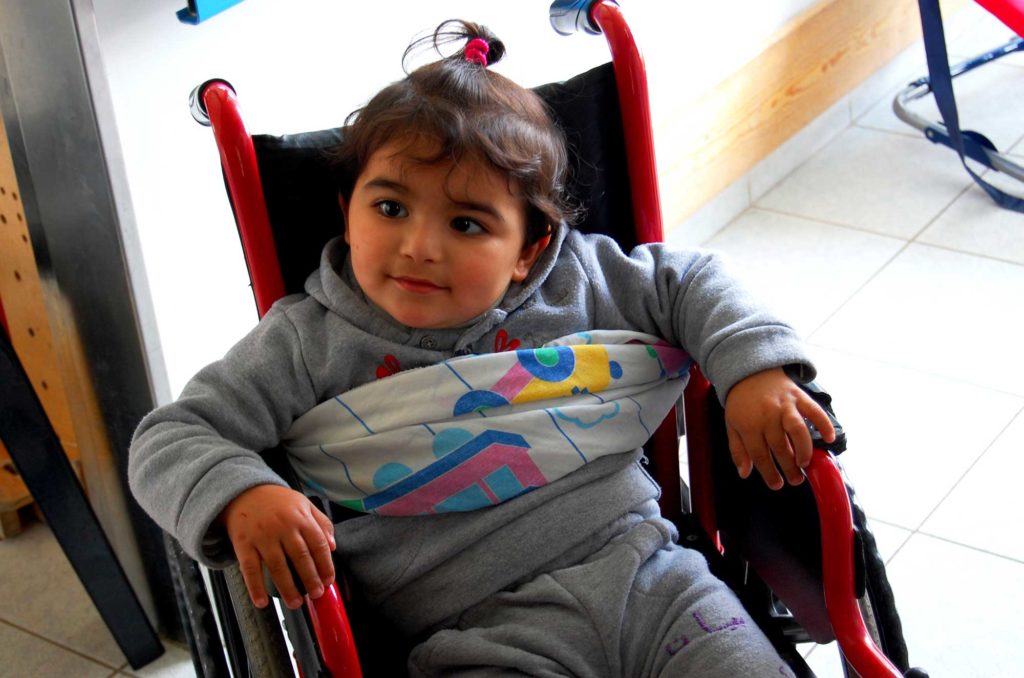Jan, 2025
Named after a mountain range, the Mount Lebanon Governorate is home to about 1.2 million Lebanese, as well as Palestinian and Syrian refugees.
Mount Lebanon surrounds the Beirut Governorate. It stretches along the Mediterranean coast and is geographically diverse. Its terrain, ranging from coastal beaches to mountains towering 9,000+ feet, make it a hotspot for tourism. It's a favorite place for skiing and hiking enthusiasts. The governorate hosts the second highest percentage of hotels in the country and also 58% of Lebanon’s industrial establishments. Within Mount Lebanon lies the Chouf, one of the most beautiful areas of the country and Burj El Barajneh, a Palestinian refugee camp near Beirut.
Anera focuses our programs on the most vulnerable communities, which in Mount Lebanon has usually led us to concentrate most of our work in Burj El Barajneh and Shatila Palestinian refugee camps.
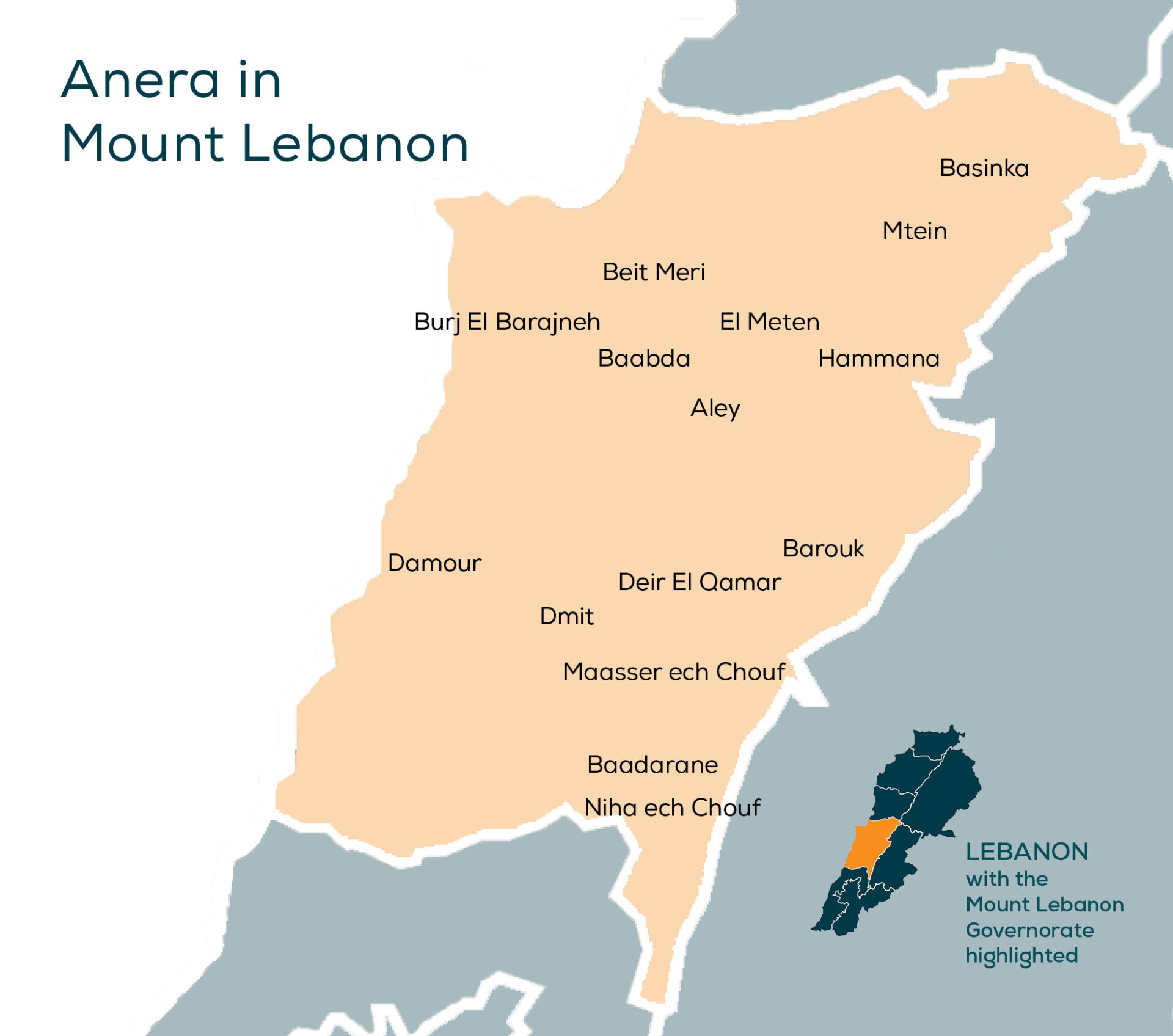

Education in Mount Lebanon
In 2018, Anera began distributing electronic tablets and laptops preloaded with engaging content to vulnerable students in Shatila Palestinian Refugee Camp. The educational laptops were provided by the educational non-profit Thaki. The Amsterdam-based non-profit organization provided the equipment to help students who lost their laptops in the blast or who could not afford to buy one. Since our initial pilot of the program in Shatila camp, Anera has expanded the partnership with Thaki to other areas of Lebanon and to Jordan.
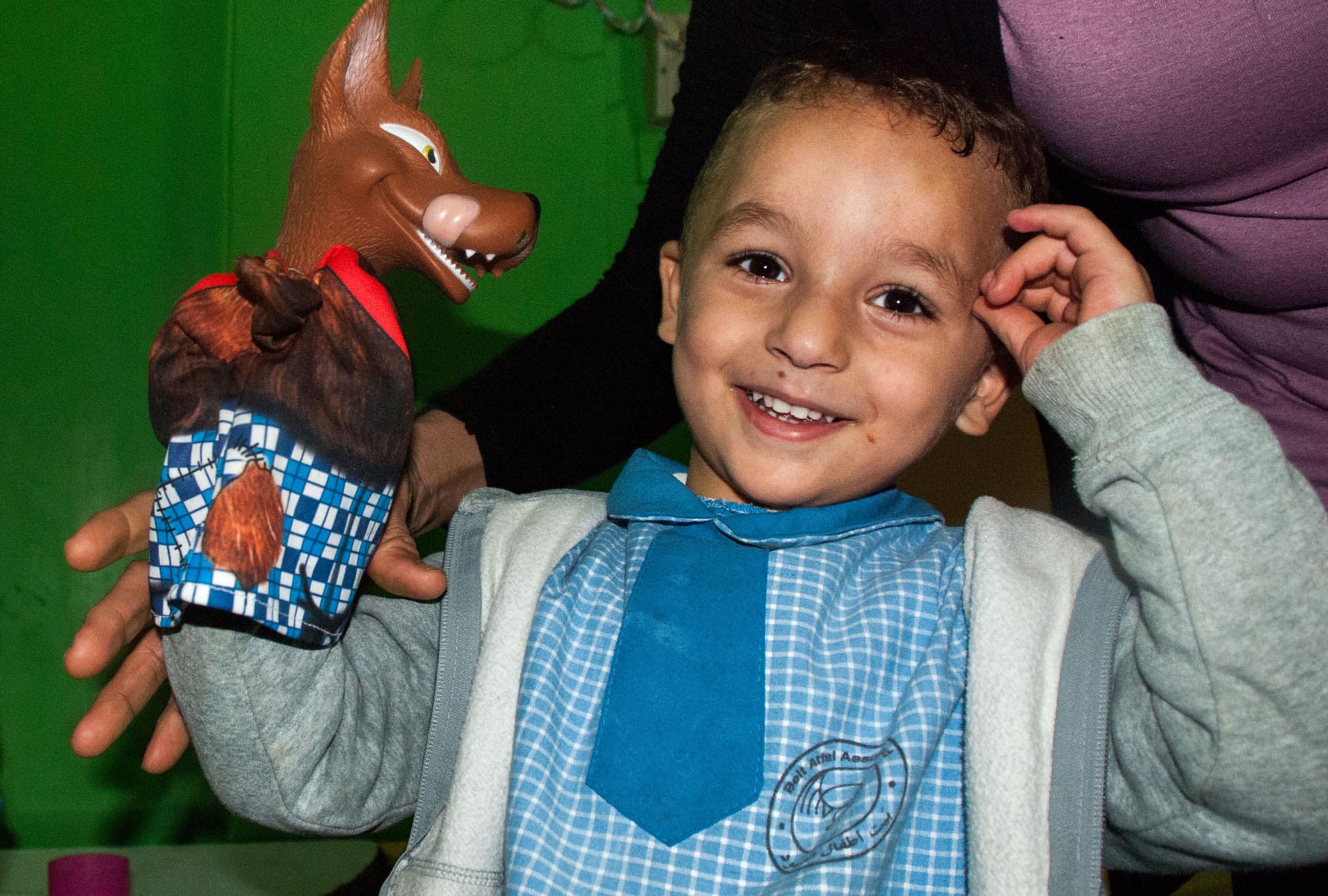

Basic Math and Literacy Courses
In partnership with local nonprofits, Anera helps out-of-school children and youths enter school by teaching them basic literacy and math skills and empowering them with life skills activities. Our trainings help youth improve basic reading, writing, math, and IT skills as cornerstones for their employability and further education, reaching Syrians, Palestinians and Lebanese living throughout Lebanon.
Anera has supported thousands of refugee youth in Mount Lebanon through our non-formal education program. We also have conducted scores of awareness sessions for parents/caregivers of the young people participating the program. The sessions raised awareness of a diverse set of topics including the importance of education, children's rights, protection against violence, special needs and disabilities, early marriage prevention, drugs, and more.
Back-to-school Campaign
Anera’s back-to-school projects in 2017 and 2018 recruited and trained 529 youth workers to serve as outreach volunteers and participate in community mobilization during Lebanon’s national back-to-school campaigns both years. Our volunteers fanned out across the Bekaa, Akkar, North, Baalbek, South, Beirut and Mount Lebanon governorates. They succeeded in referring more than 19,000 out-of-school youth back into education programs, including non-formal learning opportunities. The majority (75%) of household visits took place in Palestinian camps and gatherings.
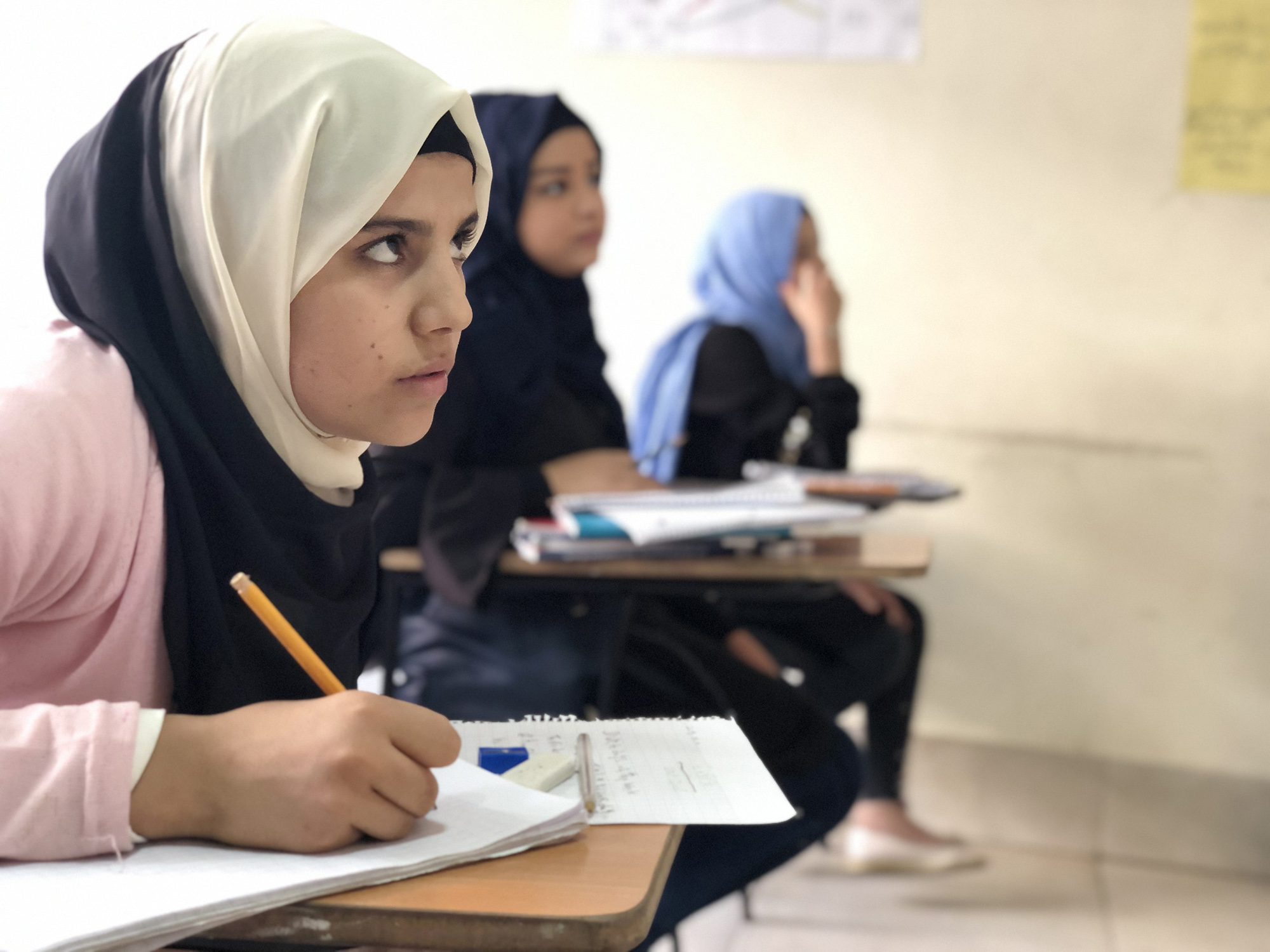

Vocational Education in Mount Lebanon
Anera works with local partners across Lebanon to offer vocational courses in fields with strong employer demand, helping to ensure that students learn the skills that will position them to get hired into good paying jobs. Students learn to become electricians, mechanics, nurses, solar installation technicians, farmers and more. Anera partners with local employers to provide paid internships following the coursework, providing practical hands-on experience that makes graduates attractive to future employers and positions them to succeed in the workplace. Often, these internships lead directly to full time jobs.
In Mount Lebanon, since 2018, we enrolled more than 6,000 students in our vocational education courses. Hundreds of our graduates went onto apprenticeships. In the Mount Lebanon Governorate, where tourism is a major economic force, many of our hospitality graduates apprenticed in five-star hotels and well-known restaurants.
In 2021, our sewing course graduates engaged in cash-for-work activities to help their community. They made 100,000 washable face masks (to prevent the spread of COVID-19) and 17,500 sanitary pads which volunteers then distributed to vulnerable families in the North, South, and Mount Lebanon governorates. They also sewed 94,420 winter items, including blankets, pajamas, track suits, overall outerwear jacket quality, socks and hoodies.
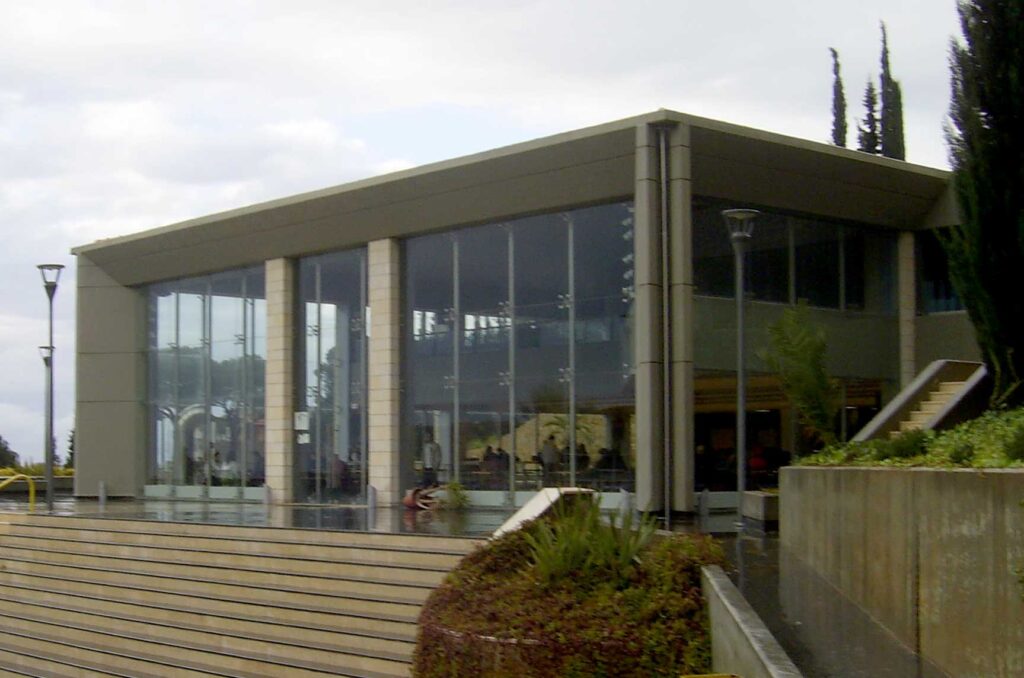

Anera's long-time partner in Lebanon, Al Kafaàt Foundation, is a well known and respected educational organization that serves people with disabilities and provides vocational training in different fields. Their catering school is popular and, in the early 2000s, Al Kafaàt designed and begun the construction of a modern restaurant complex in Beit Meri so their students could learn high volume catering skills. They abandoned the project, however, when they ran out of funds in 2004. Anera was able to step in and complete work on the building in 2007. Since then, students have been able to get on-the-job training on preparing meals, which they sell at a discount to other students. The complex also houses a traditional Lebanese fast food restaurants, a bakery, and a small bookstore. These boutique stores are managed by trainees as part of the program initiated by Al Kafaàt to teach students to be entrepreneurs.
Preschools
Early childhood development is critical to a child’s future success. To support early childhood education in the Palestinian refugee camp Burj El Barajneh, we we have promoted reading by supplying storybooks for three- to five-year-olds. We have also organized informational sessions to teach parents how to use books as a tool to encourage learning in their families. The books and sessions allow young children to begin learning English, which is the classroom language in Lebanon.
Preschool Infrastructure
In the mid 2010s, in Shatila camp, Anera rehabilitated the preschools run by two of our longtime partners in Lebanon: Najdeh and the National Institute of Social Care and Vocational Training (NISCVT). And in the same time period, we rehabilitated the National Institution of Social Care and Vocational Training Preschool in Shatila camp. We transformed the spaces into a bright, colorful and safe environment. Renovations included safer stairs, improved electrical networks, more hygienic bathrooms, and insulation for the roof to prevent the mold caused by humidity, which so often ruins buildings in the camps. Anera also rehabilitated the playgrounds, equipping them with colorful tables, benches, water fountains, swings and outdoors toys.
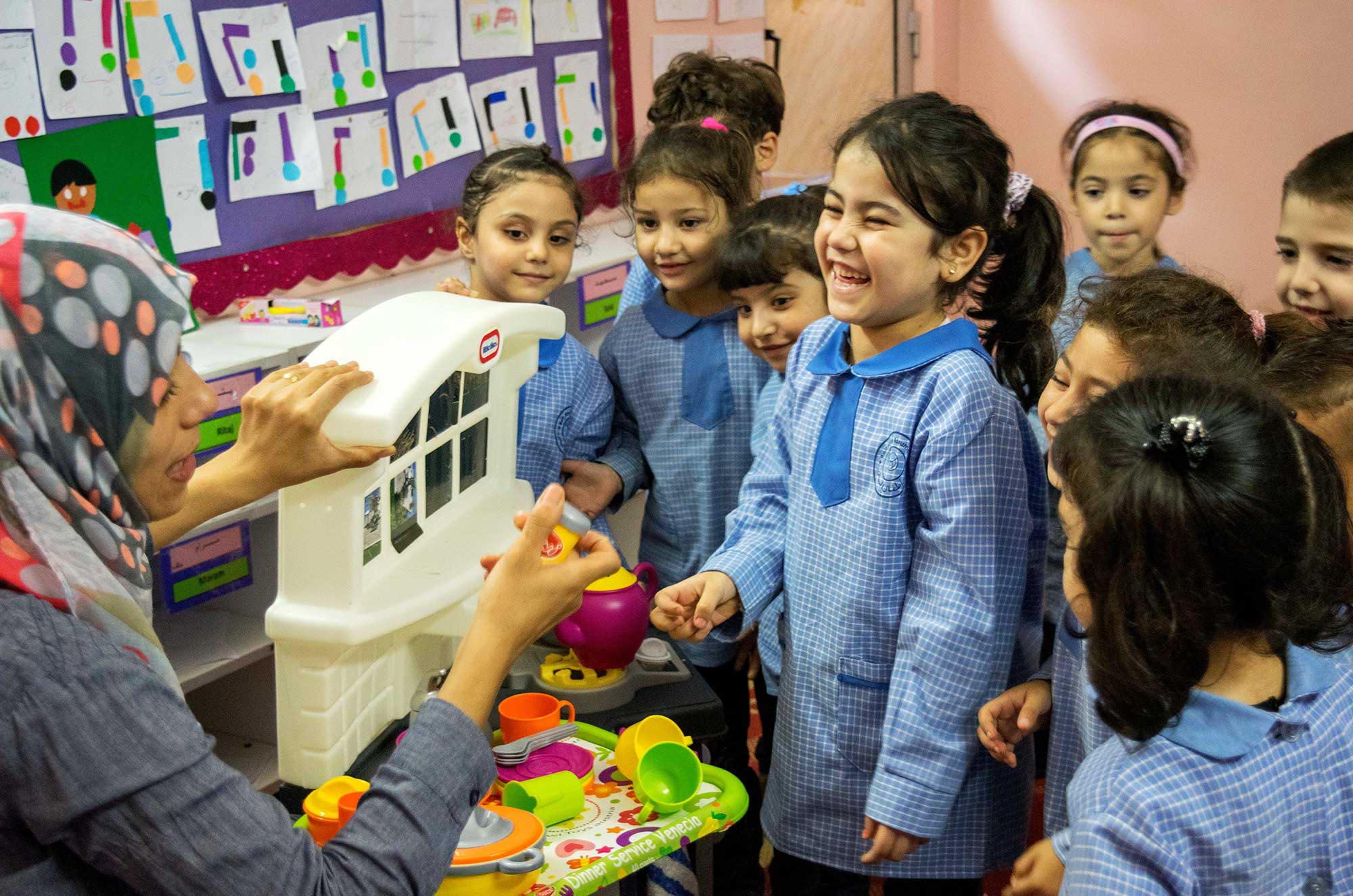

Health in Mount Lebanon
Medical Donations
Anera’s medical relief program channels quality donations of critically needed items – such as medicines for chronic conditions, hospital equipment, over-the-counter drugs, and healthcare supplies – to communities where they are most needed. In Mount Lebanon, our shipments support hospitals and clinics struggling to meet the needs of vulnerable families.
Since 2006, Anera has supplied valuable medicines, such as insulin, injectable antibiotics and medical supplies to Burj El Barajneh’s clinics and hospitals. Medications for chronic conditions such as asthma and anemia are in high demand, but are often extremely expensive for patients. In the early 2020s, we provided a steady and reliable supply of chronic disease medicines to two clinics in Burj El Barajneh and to the Saint Afram Syriac Dispensary in Jdeideh.
In Lebanon, low stocks of insulin deprive many diabetes patients of the care they need. In 2015, we worked with the YMCA to distribute vital medications, many of them for diabetes, to 103 hospitals, clinics, and dispensaries in Mount Lebanon. Our shipments reached every district in the governorate, including Baabda, Aley, Chouf, and El Meten. In 2021, we delivered $8 million worth of insulin to Lebanon, with many of the shipments going to the Chronic Care Center in Baabda, Mount Lebanon.
Medical donations and relief remain a high priority for our work in Mount Lebanon, with the shipments providing patients with the care they need without the financial burden.
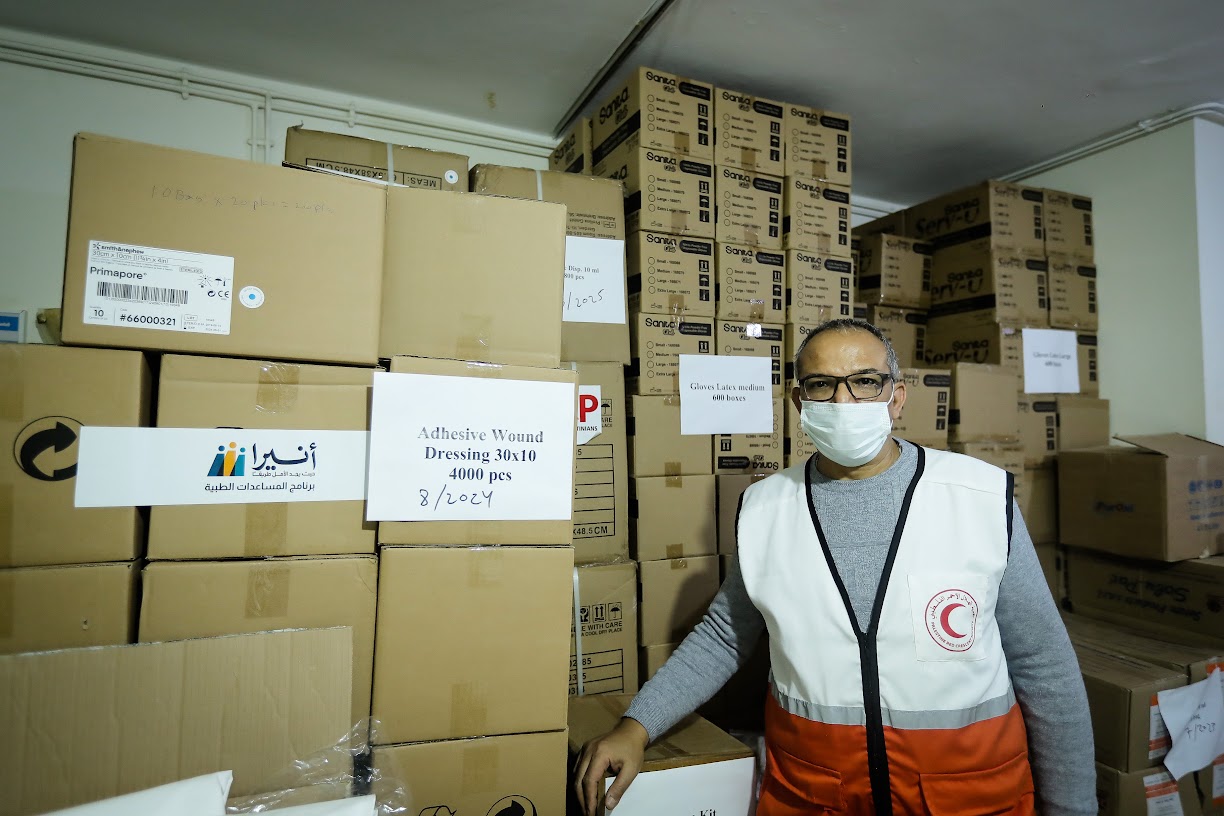

Equipment for People with Disabilities
Refugees with physical disabilities living in Shatila camp struggle in the absence of services and proper care to meet their needs. The government does not provide health and social services, so they rely fully on nonprofits like Anera to help them. In 2021, Anera delivered accessibility equipment items, from crutches to wheelchairs, to benefit 684 people with disabilities. Our valued partners in this work were the Shatila Home Center for the Elderly and the Palestinian Civil Defense.
One of our recipients in Shatila was a 13-year-old boy with cerebral palsy who was homebound before getting a wheelchair. Said his mother, Iman:


He used to sit in a bucket and drag himself around the house. He is a child — he needs to move. But he was trapped.
Healthy Day Festival
In 2013, in Shatila and Burj El Barajneh camps, Anera and the Najdeh Association organized “Healthy Day” festivals, featuring skits that provided useful health tips, like how to prevent and treat parasitic infections or to get a reluctant child to eat healthy food. The message of the day was focused on healthy habits, especially relevant for refugee families trying to keep some sense of normalcy under difficult conditions. These festivals engaged Syrian refugees in some fun activities in the midst of the gloom they were experiencing as they tried to survive in cramped, tension-filled living conditions.
Creative Health Campaign
In the late 2000s and early 2010s, Anera's Creative Health Campaign in Lebanon promoted simple, cost-effective, good health practices to people living in marginalized and impoverished communities. Anera distributed over one million posters, stickers, games, calendars and other printed educational materials, hosted scores of festivals and parades, and galvanized thousands of activists/volunteers to spread the word about health habits. Our themes included breastfeeding, homemade baby foods, home-based oral rehydration solutions, good nutrition and exercise, smoking cessation, and the rational use of medicines. The Creative Health Campaign worked through 120 local partners, including five in the Shatila camp – the Joint Christian Community, Najdeh Association, Women Humanitarian Organization, Child and Youth Center and Beit Atfal Assamoud. Burj El Barajneh was also one of the major focus points of the campaign.
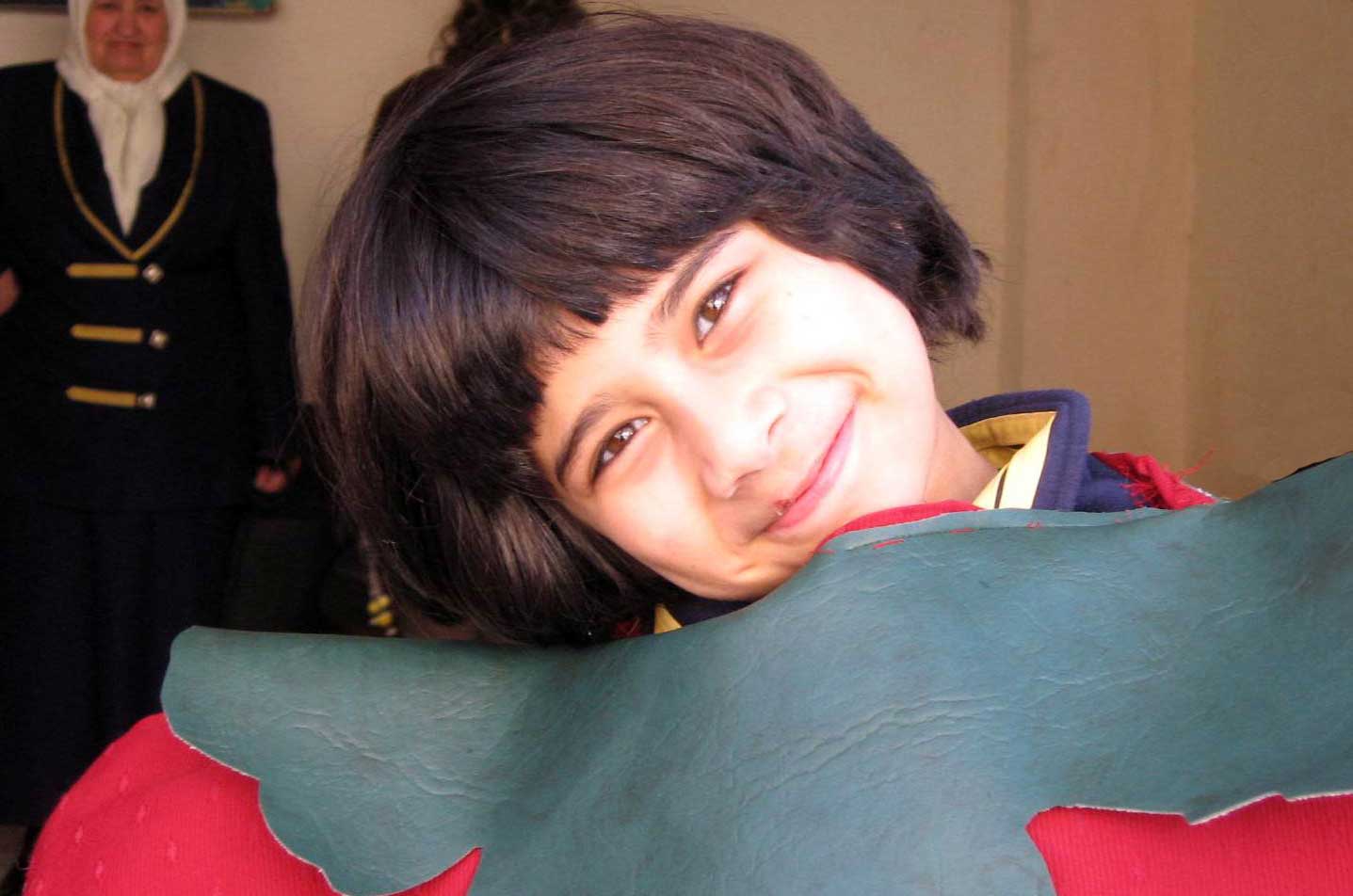

Health Facility Infrastructure
Burj El Barajneh refugee camp is one of the most overpopulated camps in Lebanon, with an estimated 31,000 people living in one square kilometer. As a result of the deteriorating living conditions and unhealthy housing in camps, as well as low wages and high rates of poverty, the population of the camp suffers from complicated health problem. Haifa Hospital, located in Burj El Barajneh, is one of five Palestinian Red Crescent hospitals in Lebanon. In 2019, Anera renovated the hospital, including demolition of the outdated facilities, new thermal and moisture protection, complete electrical updating, moving and installing new oxygen lines and repositioning the x-ray room for more efficient use of precious space. The renovation also improved the operating rooms. The renovation improved the hospital’s ease of use, enabling doctors and patients to use the space more efficiently, and the hospital to spend its limited funds on medicine and medical equipment instead of building repairs.
In the early 2020s, Anera embarked on a plan to power health and education facilities in Lebanon with solar. The solar panel installations have allowed facilities like the AICP Hidaya School in Bchamoun to save money on electricity, which can now be redirected towards providing better services to the Lebanese citizens and refugees who rely on them. This includes hiring more staff, increasing salaries, and using electrical medical equipment more efficiently.
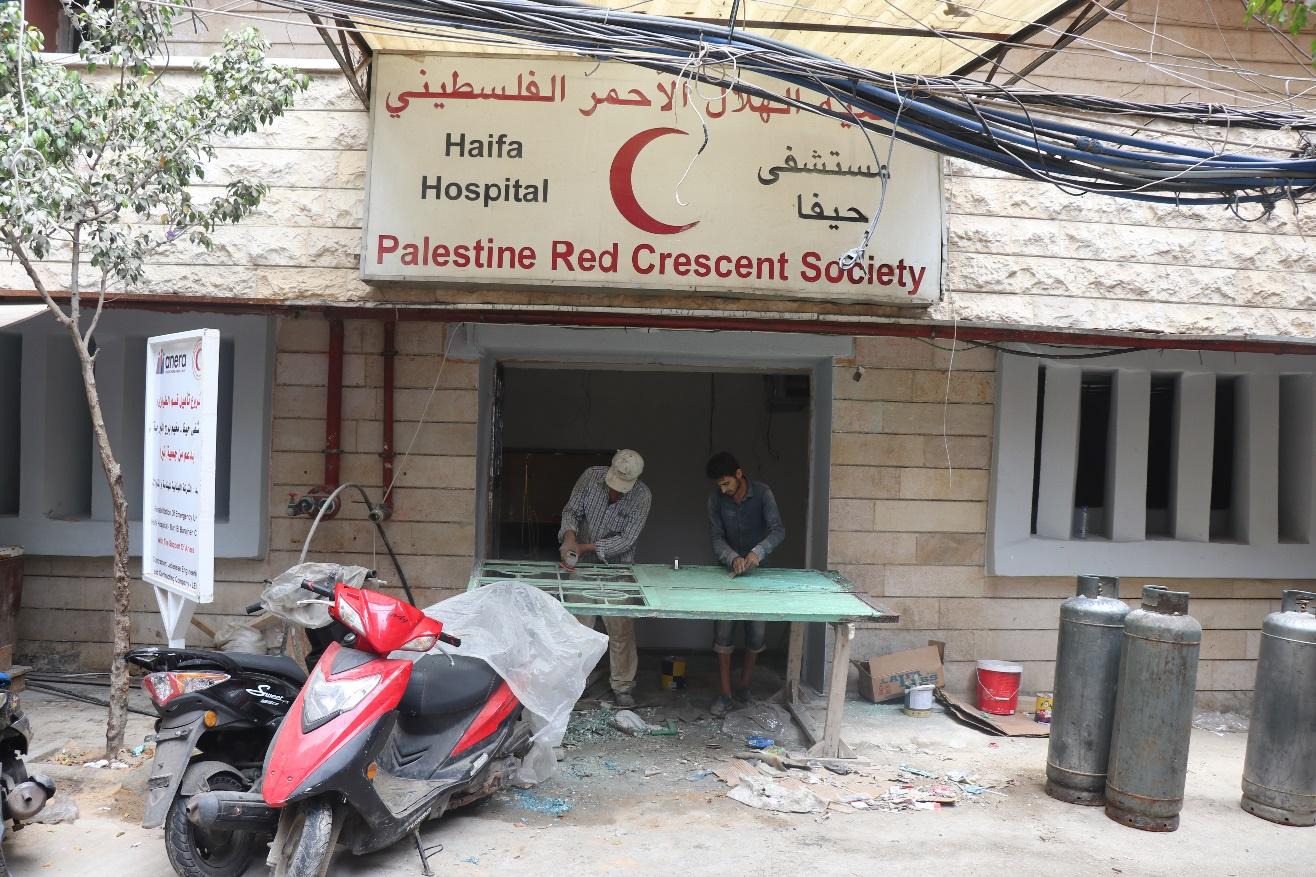

Before Renovations
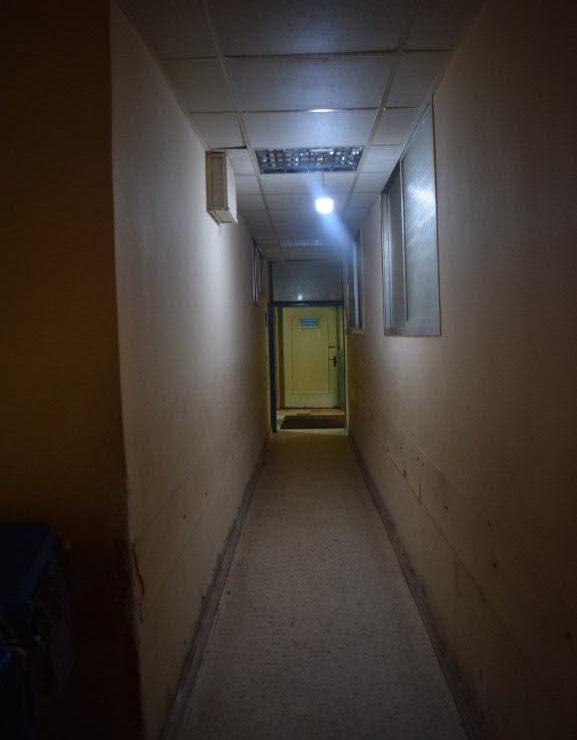

After Renovations
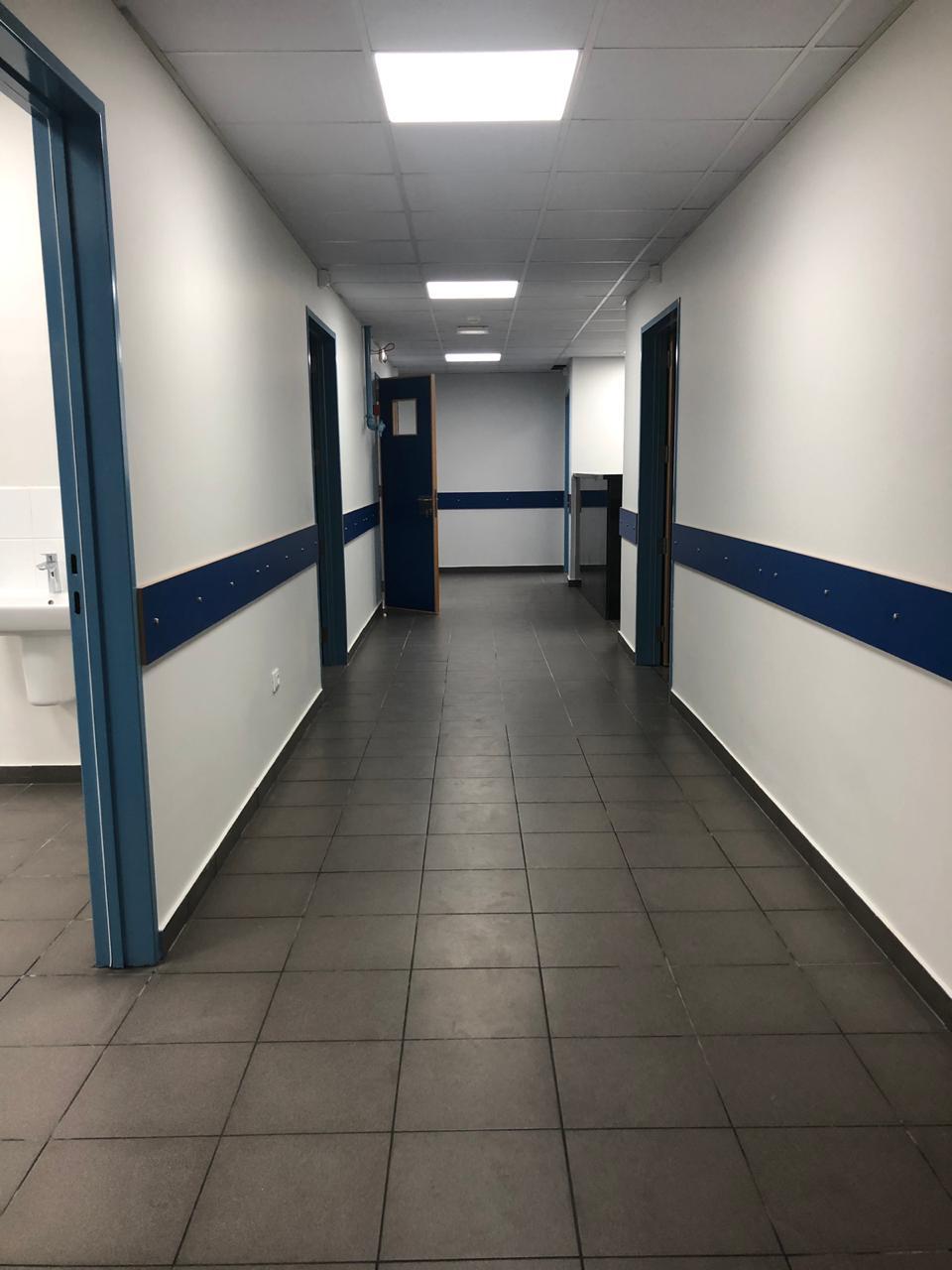

COVID-19 Vaccination Campaign in Mount Lebanon
In 2020, Anera launched a vaccination campaign project in Palestinian refugee camps throughout Lebanon, including Burj El Barajneh. In the midst of the COVID-19 crisis, Palestinian refugee camps were plagued with existing challenges that were exacerbated by the pandemic, such as challenges in infrastructure, access to clean water and sanitation, and overcrowding. In addition, many Palestinian refugee camps saw widespread hesitancy towards the recommended precautionary measures and vaccination.
Through the campaign we distributed motivational kits to community members to promote increased vaccination rates and protect the health and well-being of the community. The motivational kits, composed of food parcels and hygiene supplies, were donated to 3,266 households, many of them in Burj El Barajneh. Through the distribution of these kits, interest in vaccination skyrocketed, leading to an increase in requests for registration support and transportation to vaccine clinics. By the end of our campaign, 90% of Palestinians ages 15+ in the refugee camps we reached received at least one COVID-19 vaccine dose, totaling nearly 140,000 people.
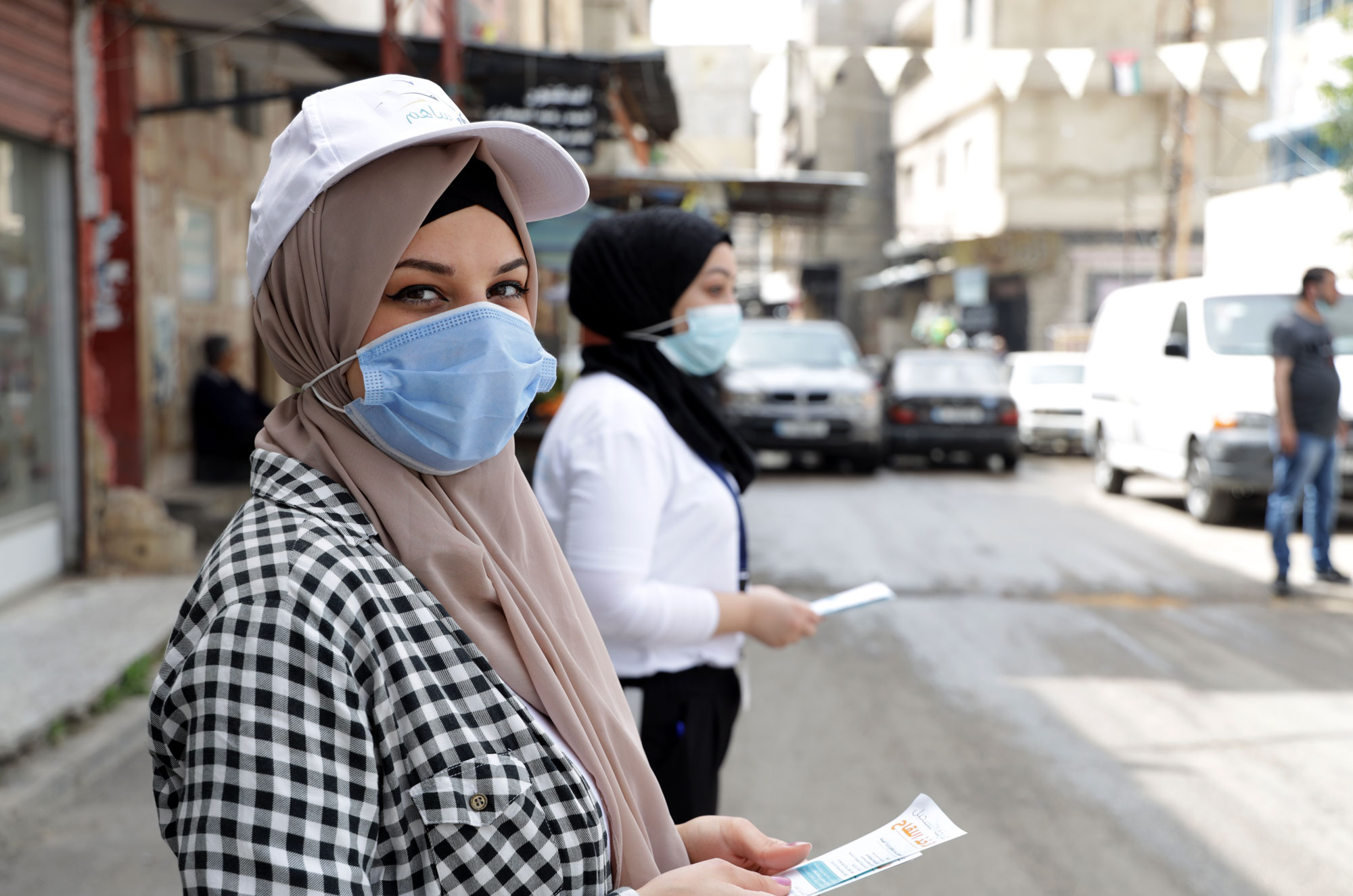

Hygiene and Sanitation
Overcrowding, poor economic conditions, and social and political marginalization have made the people of Burj El Barajneh vulnerable to poor sanitation practices and conditions. The importance of practices such as hand washing and showering can fall to the wayside. Increasing the likelihood of illness and disease. In 2018, Anera expanded our hygiene and sanitation awareness campaigns to five schools and communities in Burj El Barajneh. We implemented a series of school-based activities with the support of youth volunteers, engaging students in interactive lessons and activities about hygiene and sanitation. We also delivered integrated hygiene awareness messages through the schools’ health curriculums, reaching over 1,800 UNRWA school children through the hygiene promotion activities across the three Palestinian refugee camps the project was implemented in.
Our programs continued in 2019. Through hygiene awareness activities implemented in schools, youth and parents learned the importance of personal hygiene behaviors. We reached more than 9,000 individuals across Lebanon, including in Burj El Barajneh, and parents and teachers reported seeing visible change in the attitudes, knowledge and behavior of the youth toward hygiene practices.
Menstrual Hygiene
Our hygiene and sanitation programs in Mount Lebanon also emphasize the importance of menstrual hygiene. In 2018, we hosted awareness sessions on menstrual hygiene across three refugee camps, including Burj El Barajneh. More than 1,000 women attended, and 70% reported having little knowledge on how to educate their children on menstruation prior to the awareness sessions. The initiative helped to correct misconceptions on menstruation among young participants, emphasizing ideas such as the importance of showering and exercising during menstruation.
In 2022, Anera implemented awareness sessions again, this time for female heads-of-households and girls in schools on menstrual hygiene. In this project alone, over 43,500 women were reached through online awareness sessions and 8,000 women heads of households received in-person sessions, with many participants residing in Burj El Barajneh. Over 3,000 school girls received sessions on puberty and menstrual health, where Anera distributed menstrual hygiene kits containing menstrual pads. Hygiene and sanitation promotion continues to be a cornerstone of our work in Mount Lebanon, reaching thousands of individuals through our awareness sessions and outreach.
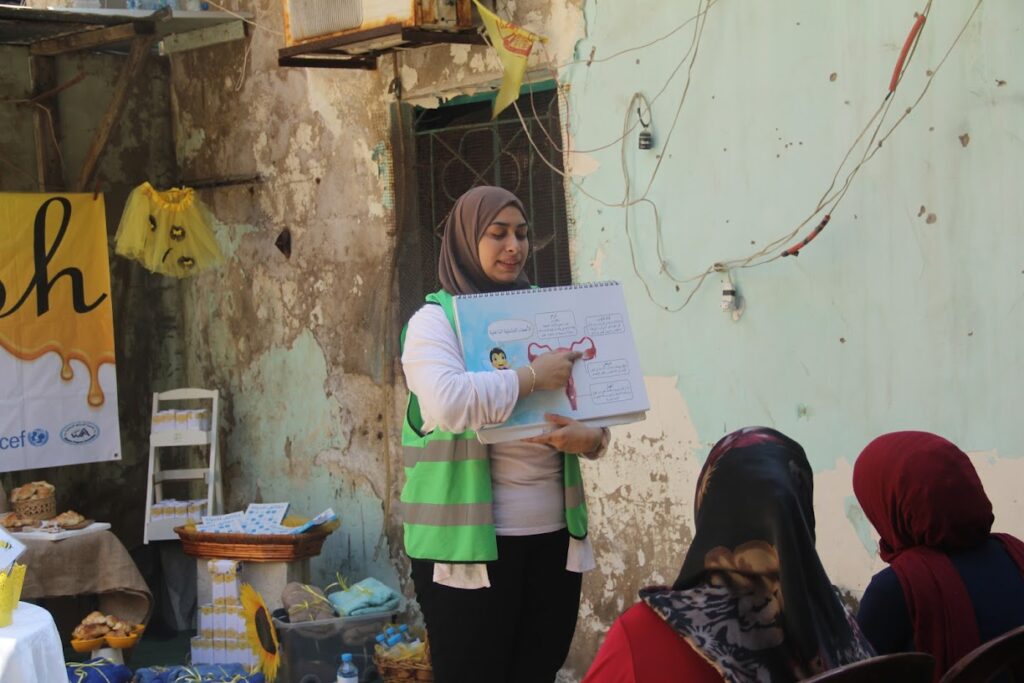

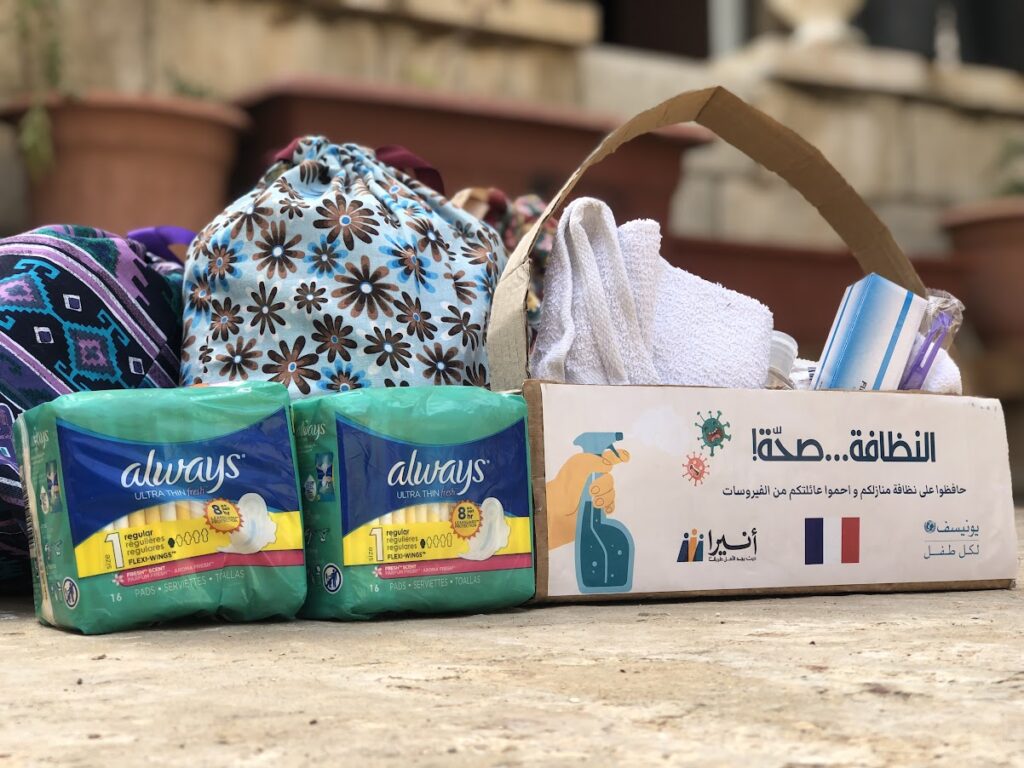

Waste Management in Mount Lebanon
Recycling and Upcycling
In many refugee camps, a lack of infrastructure leads to the mismanagement of waste, leading to trash pile-ups and a lack of knowledge about how to dispose of waste properly. In 2022, Anera began a waste management program in Palestinian refugee camps in Lebanon, including Burj El Barajneh. In this program, we supported 5,720 households by promoting the selling of recyclable materials. Individuals were taught how to sell recyclables to waste-sorting facilities for a price based on weight and quantity, helping to sort and get rid of waste in their communities while generating income.
In addition to helping families and individuals make money from sorting waste, Anera implemented a capacity-building project for women in Burj El Barajneh focused on waste management. We trained 60 women leaders to transform household waste into beautiful artistic pieces. This training allowed them to gain employable skills while allowing them to turn waste in their community into art.
Solid Waste Management
In the late 2010s and early 2020s, Anera promoted home waste sorting, recycling and upcycling in Lebanon’s refugee camps. Young volunteers in five camps, including Shatila, fanned out into their communities to clean streets and educate their neighbors about recycling. Also in Shatila, Anera ran a pilot project where youth collected sorted waste from homes, recording the quantity, size, weight, and type of sorted materials. Youth then provided the family with a receipt and a cash value for the recyclables. At the end of each month, participating families collected the cash they earned.
Sports
Anera and Inter Campus worked together in Shatila camp to use sports as an educational and humanitarian tool for the benefit of society at large. In partnership with Anera, in the late 2010s, trainers from Inter Campus went several times to Shatila to work hand-in-hand with local coaches. They conducted sports activities with 80 young boys and girls at the Al Siraj soccer field located inside the camp, with the aim of building a generation that is better equipped to reach its full potential.
Community in Mount Lebanon
Hospitality and Tourism
Tourism in the Mount Lebanon governorate is a major income–producing sector. With the second highest percentage of hotels in Lebanon, behind only Beirut, the tourism industry is a vital source of income and employment. To boost this industry, Anera launched a hospitality and tourism development program in 2005. The primary goal was to increase economic opportunities in rural communities by stimulating income and employment in the tourism sector.
Anera helped cottage inn owners in Damour, Maasser ech Chouf, Hammana, Dmit, Deir El Qamar, Bhordok, Baskinta, Mtein, Barouk, Baadarane and Niha ech Chouf to develop their plans to improve their facilities and better meet the needs of potential clients. Our trainings focused on technical skills related to the day-to-day management of services, including projects such as the development of owner manuals and financial consultations. The trainings reached every area of the tourism sector, such as food providers and tour guides, aiming to improve the industry in a variety of ways. Our hospitality program improved 12 cottage inns, small hotels, bed and breakfasts, and hostels in Mount Lebanon and ended in 2015.
Humanitarian Relief in Mount Lebanon
Food Assistance
During Ramadan, soaring prices, poverty, and unemployment can negatively impact the festivities for families and individuals who celebrate. Purchasing food for the nightly iftar meal, which must be nutritious enough to provide fuel for long days of fasting, can be difficult for those struggling financially. In Mount Lebanon, particularly in Burj El Barajneh, in the early 2020s, Anera put together large Ramadan food parcels for 5,359 vulnerable families. The packages contained a variety of essentials such as rice, lentils, beans, dates, sugar, tea, milk, and traditional jallab juice. In 2015, we also distributed Ramadan food packages to 900 refugee families in the camp.
Anera worked with the Palestinian Disability Forum to identify families who had one or more members with disabilities as recipients for Ramadan food parcels in 2018. The parcels contained a generous supply of healthy items. Anera distributed 200 in Shatila.
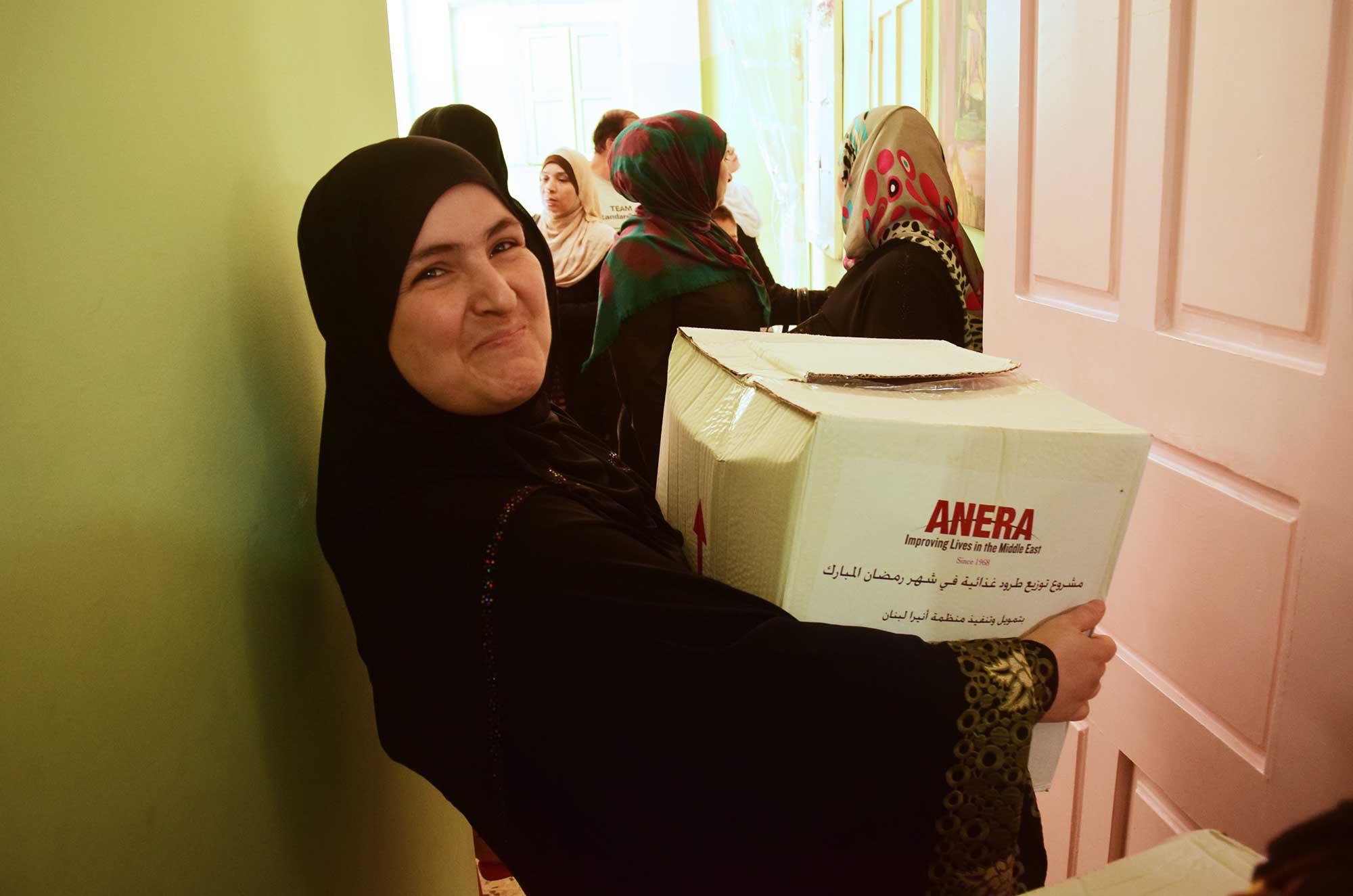

Material Assistance
In Mount Lebanon, we provide critical supplies to families in need. Our material support ranges from quilts and clothing vouchers to baby and family hygiene kits.
After the 2006 war in southern Lebanon, Anera focused on meeting the needs of displaced and needy families affected by the conflict. Partnering with six local nonprofits, we distributed emergency kits containing milk, diapers, personal hygiene items, and other necessities to 27,000 mothers and their children in Beirut, El Meten, and South Lebanon. The distribution of emergency kits was complemented with health education for mothers with children under three years of age. Key messages included the importance of breast feeding, preparation and use of homemade oral rehydration salts, and management of fever and diarrhea.
In 2013, we expanded our assistance, distributing quilts and a wider range of kits to support 1,550 families in Burj El Barajneh and the surrounding areas. In 2019, we delivered millions of dollars worth of material relief items to Palestinian refugee camps throughout Lebanon, including Burj El Barajneh.
Our material donations continue today, helping families receive the items they need to take care of themselves and protect their financial dignity.
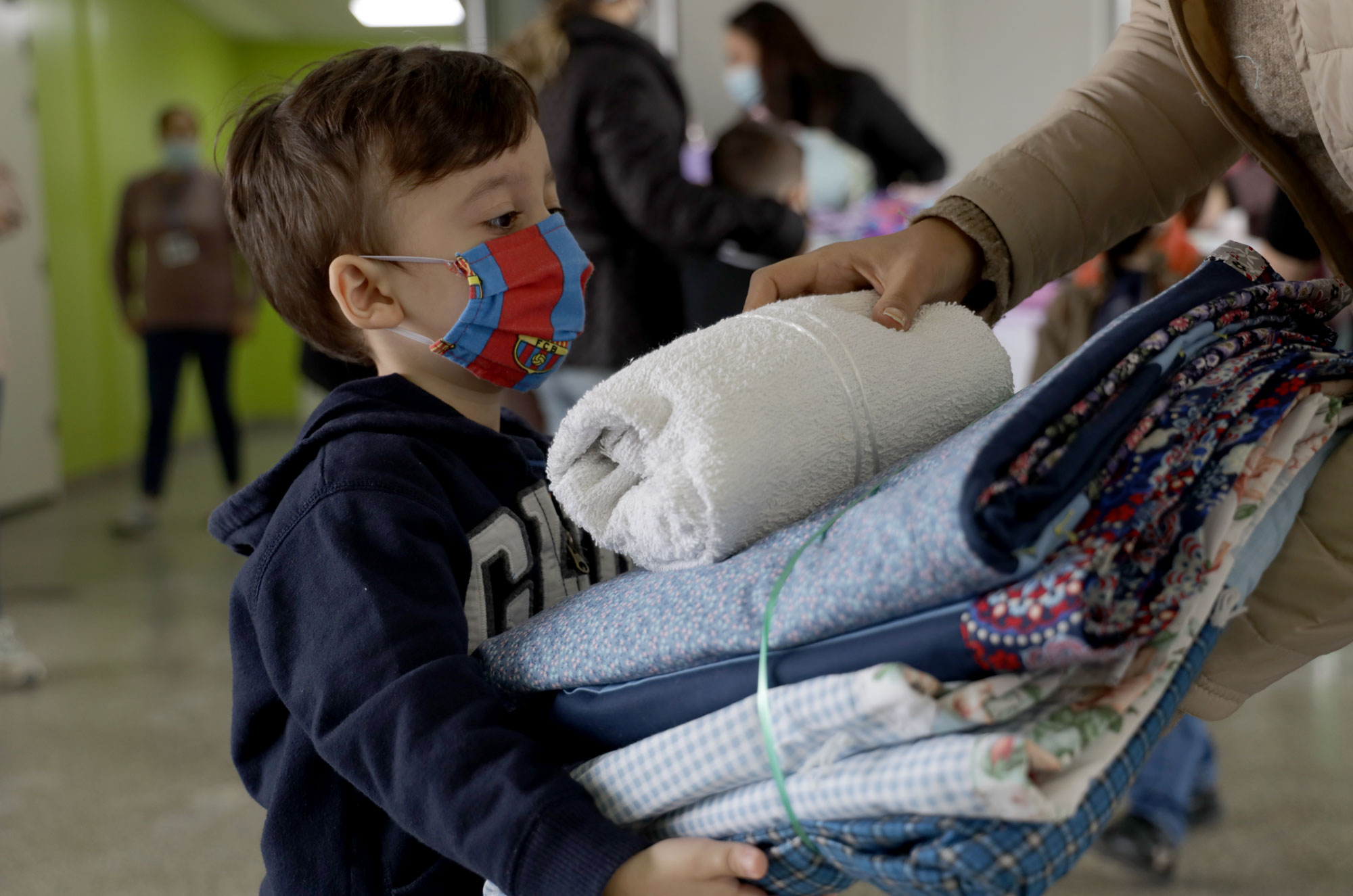

Winterization
In Lebanon, the winter can be harsh, particularly at higher elevations. For those without proper shelter, equipment, and clothing, the winter season can be a dangerous time. In the winter of 2015, Anera implemented a winterization assistance project, distributing 4,000 blankets and emergency lights to 2,000+ families in two Palestinian refugee camps, Burj El Barajneh and Nahr El Bared (North Governorate).
Shoes
A year after the port explosion, many residents were still walking the streets of greater Beirut in torn or worn out slippers or even barefoot. Many families could not afford shoes to protect their feet from cuts, bruises and infections. To help, Anera distributed 43,601 pairs of new shoes, from sneakers to ankle boots. One of our main local partners was the Women's Program Association in Burj El Barajneh.
In 2016, Anera distributed new TOMS Shoes to all students at the Najdeh Association preschool in Shatila. These comfortable, high-quality shoes kept children from stepping on sharp, dangerous objects or contracting parasites and other diseases when they stepped out of the safe confines of their school. Anera distributed 48,900 pairs of new shoes throughout Lebanon in 2016!
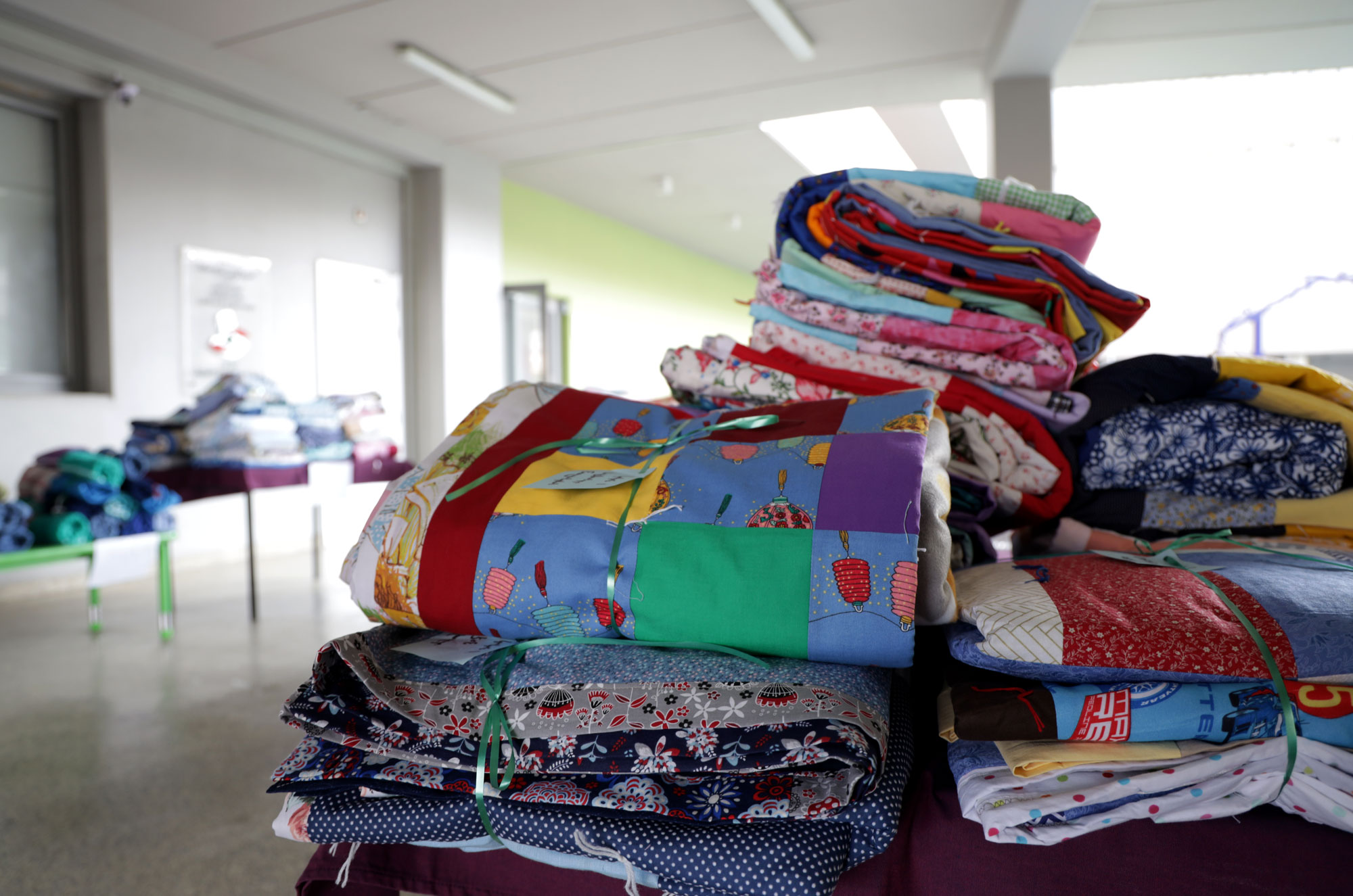

Helping Palestinian Women From Syria
Beginning in June 2013, Anera implemented a four-month relief project in Beirut to address the pressing needs of Palestinian refugee women from Syria. Anera designed the project in coordination with UNRWA and in partnership with the community-based organization, Najdeh Association. We worked in the Burj El Barajneh and Shatila camps as well as the surrounding neighborhoods.
Anera provided material support to 1,550 families, including food coupons, quilts, female dignity kits, baby care kits, personal hygiene kits, and family hygiene kits. Additionally, 700 Palestinian host families benefited from a symbolic “host family gift,” which included personal hygiene kits and baby care kits. The inclusion of host families was intended to relieve tensions building up between host families and refugees. The project also provided access to psychosocial support services for women, including individual counseling, group sessions and expressive activities. Health promotion activities were organized by locally recruited and trained volunteers.

